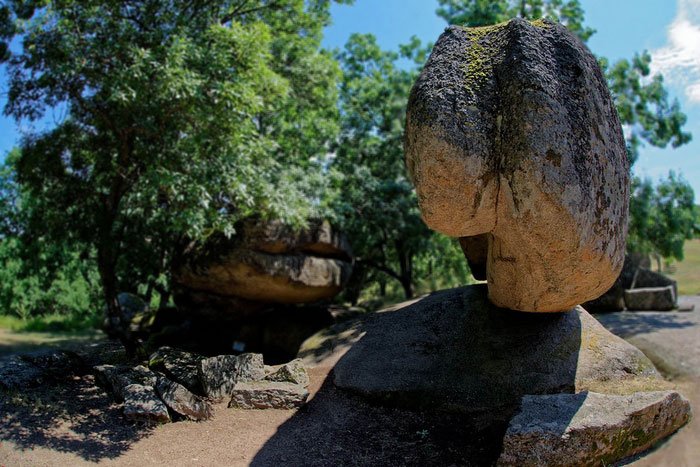27. Agreement was reached on these conditions, and the emperor set out from the capital to one of his most magnificent estates, there to receive the rebel and ratify the treaty.**17 Basil seated himself in the [23] royal tent. Sclerus, some distance away, was introduced by the guards. They led him into the emperor’s presence, without preliminaries, not riding on horseback, but escorted on foot. Sclerus was a very tall man, but he was also an aged man, and he came in supported by guards on either side.
Unable to walk by himself
The emperors seeing him approaching some way off, turned to the bystanders and made his celebrated remark (everyone knows the story): ‘Look, the man whom I feared! A suppliant dotard, unable to walk by himself!’ As for Sclerus, whether because of his eagerness, or because in any case he had forgotten them, he had kept on his feet the sandals of purple when he laid aside the other insignia of power. It seemed that he was arrogating some share in the royal prerogative.
Anyway, he approached the emperor wearing the sandals. Basil saw all this from a distance and shut his eyes in annoyance, refusing to see him at all unless he first clothed himself like an ordinary citizen in every detail. At all events, there and then Sclerus shook of his purple sandals at the door of the tent and so entered the emperor’s presence.
28. As soon as he saw him enter, Basil rose and they embraced one another. Then they held converse, the one excusing his revolt and explaining the reasons why he had plotted and carried it out, the other quietly accepting the apology and attributing to bad luck what had occurred. When they shared a common drinking-bowl, the emperor first put to his own lips the cup offered to Sclerus and took a moderate sip of its contents before handing it back to his guest. Thus he relieved him of any suspicion of poison, and at the same time proved the sanctity of their agreement.
After this Basil proceeded to question him, as a man accustomed to command, about his Empire, how it could be preserved free from dissension. Sclerus had an answer to this, although it was not the sort of advice one would expect from a general; in fact, it sounded more like a diabolical plot. ‘Cut down,’ he said, ‘the governors who become overproud. Let no generals on campaign have too many resources. Exhaust them with unjust exactions, to keep them busied with their own affairs. Admit no woman to the imperial councils. Be accessible to no one. Share with few your most intimate plans.’
Read More about Basil II part 16








